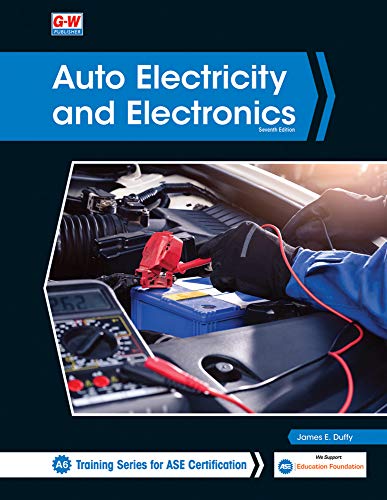Does your car’s dashboard light up like a Christmas tree when you least expect it? Or maybe a mysterious electrical gremlin is causing your headlights to flicker and your radio to go silent at random? These frustrating problems often point to issues with your car’s auto electric system. It’s a part of your car that’s incredibly important but often a mystery to most drivers.
Choosing the right auto electric service can feel like navigating a maze. You worry about getting ripped off, not getting the problem fixed right the first time, or spending more money than you have to. It’s stressful when you just want your car to run smoothly and reliably. But what if there was a way to make this process easier and more confident?
In this post, we’ll help you understand the basics of auto electrics and what to look for when you need expert help. You’ll learn how to spot common issues, ask the right questions, and find a mechanic you can trust. By the end, you’ll feel much more prepared to tackle any electrical trouble your car throws your way.
Our Top 5 Auto Electric Recommendations at a Glance
Top 5 Auto Electric Detailed Reviews
1. Automotive Wiring and Electrical Systems (Workbench Series)
Rating: 8.7/10
The Automotive Wiring and Electrical Systems (Workbench Series) book is a fantastic guide for anyone wanting to understand how cars work electrically. It breaks down complex topics into easy-to-understand language. This book helps you tackle everything from simple bulb changes to more complicated system repairs.
What We Like:
- Clear explanations make tough topics simple.
- Covers a wide range of automotive electrical systems.
- Step-by-step instructions are easy to follow.
- Lots of diagrams and pictures help you see what’s going on.
- It builds your confidence to do your own car repairs.
What Could Be Improved:
- Some of the more advanced topics might still need extra research.
- Could include more real-world troubleshooting examples.
This book is a valuable resource for both beginners and experienced DIY mechanics. It empowers you to take control of your car’s electrical health.
2. WINAMOO Automotive Test Light 5-90V Digital LED Circuit Tester with Voltage Display
Rating: 9.1/10
The WINAMOO Automotive Test Light is a handy tool for anyone working on car electrical systems. It helps you find problems with wires and circuits quickly and safely. Its digital display shows you the exact voltage, making it easy to understand what’s going on.
What We Like:
- The bright LED digital display is super clear, even in sunlight.
- The long, flexible spring wire lets you reach all sorts of places easily.
- The alligator clip is big and easy to connect, even with one hand.
- The bidirectional lights tell you if you’re connected to positive or negative power.
- It has a built-in chip that makes it safer and more durable than older testers.
- The sharp probe can pierce wires and get into tight spots to check many different parts of your car’s electrical system.
What Could Be Improved:
- While it’s generally safe, always remember to double-check connections to avoid electric shock.
- The spring wire, while long, might be a bit unwieldy for very small spaces.
This tester is a great addition to any car enthusiast’s toolbox. It makes diagnosing electrical issues much simpler and safer.
3. Twippo 352Pcs Waterproof Car Electrical Connector Terminals Automotive Electrical Wire Connector Plug Kit 1/2/3/4 Pin Connectors Male and Female
Rating: 9.0/10
Tired of unreliable electrical connections in your vehicle? The Twippo 352Pcs Waterproof Car Electrical Connector Terminals Automotive Electrical Wire Connector Plug Kit is here to help. This comprehensive kit includes a whopping 352 pieces, spread across 26 sets of 1, 2, 3, and 4-pin waterproof connectors. These connectors are designed for automotive use and come with male and female terminals, plus silicone rubber seals to keep moisture out. Whether you’re working on a motorcycle, car, boat, or anything in between, this kit offers a solid solution for most of your wiring needs.
What We Like:
- Generous quantity: 352 pieces in 26 sets cover a wide range of projects.
- Waterproof and dustproof design protects your connections from the elements.
- High-quality materials ensure good conductivity and prevent oxidation.
- Secure buckle design keeps terminals firmly in place.
- Easy to install with soldering and crimping.
- Versatile applications for various vehicles like motorcycles, cars, and boats.
- Comes with a 365-day payment refund guarantee for peace of mind.
What Could Be Improved:
- Instructions are digital and need to be downloaded separately.
- While the kit is extensive, very specialized or high-pin count connectors might still require separate purchases.
Overall, this Twippo connector kit provides a robust and reliable solution for your automotive electrical needs. It’s a great value for DIYers and professionals alike.
4. How to Diagnose and Repair Automotive Electrical Systems (Motorbooks Workshop)
Rating: 9.2/10
The “How to Diagnose and Repair Automotive Electrical Systems” book from Motorbooks Workshop is a fantastic resource for anyone who wants to understand their car’s electrical quirks. It breaks down complex wiring and systems into easy-to-grasp concepts. You’ll learn how to pinpoint problems and fix them yourself, saving you time and money.
What We Like:
- Clear explanations make difficult topics understandable.
- It covers a wide range of common electrical issues.
- Lots of helpful diagrams and illustrations guide you.
- Empowers you to tackle repairs confidently.
- Provides step-by-step instructions for many fixes.
What Could Be Improved:
- The book might be a bit overwhelming for absolute beginners.
- Some older vehicle-specific diagrams may not apply to newer cars.
This book is an excellent investment for DIY enthusiasts. It equips you with the knowledge to keep your car running smoothly.
5. Auto Electricity and Electronics (Training Series for Ase Certification
Rating: 8.5/10
This Auto Electricity and Electronics training series is designed to help you get ready for the ASE A6 certification exam. It focuses on the electrical systems and electronics found in modern vehicles. You’ll learn about how these systems work and how to diagnose and fix problems. This series is a valuable tool for anyone wanting to become a certified automotive technician.
What We Like:
- Clear explanations of complex topics.
- Helps build a strong foundation for ASE certification.
- Covers essential automotive electrical and electronic concepts.
- Practical approach to learning.
What Could Be Improved:
- Could include more hands-on exercises or simulations.
- More visual aids like diagrams and charts would be beneficial.
- Additional real-world case studies could enhance understanding.
This training series is a solid resource for aspiring auto technicians. It provides the knowledge needed to tackle the ASE A6 exam.
Your Guide to Choosing the Best Auto Electric Gear
Navigating the world of auto electrics can seem tricky, but it doesn’t have to be. This guide will help you pick the right tools and parts for your car. We’ll cover what to look for, what makes good quality, and how to use these items.
1. Key Features to Look For
When you shop for auto electrics, keep these important features in mind. They help you do your job better and keep your car running smoothly.
- Durability: You want items that last. Look for sturdy construction that can handle bumps and vibrations in a car.
- Ease of Use: Simple designs make your work faster. Think about how easy it is to connect wires, read displays, or operate tools.
- Accuracy: For testing or measuring, precision is key. A tool that gives you the right readings saves you time and prevents mistakes.
- Safety Features: Some items have built-in safety. This could be overload protection or insulated handles to keep you safe from shocks.
- Compatibility: Make sure the part or tool works with your specific car model. Check connectors and voltage requirements.
2. Important Materials
The stuff auto electric parts are made of really matters for how well they work and how long they last. Good materials mean better performance.
- Copper: This is super common for wires and connectors. Copper is a great conductor of electricity, which means power flows easily. It also doesn’t corrode too easily.
- High-Quality Plastics: You’ll see plastics in housings, insulation, and connectors. Strong, heat-resistant plastics protect the inner parts and keep you safe.
- Rubber: Rubber is often used for insulation and seals. It keeps water and dirt out and prevents electrical shorts. Flexible rubber is best.
- Steel: Strong steel is used for mounting brackets and some tool parts. It needs to be strong enough to hold things in place and withstand stress.
3. Factors That Improve or Reduce Quality
Some things make auto electrics great, while others can make them weak. Knowing this helps you choose wisely.
- Good Workmanship: When things are put together carefully, they work better. Clean solder joints and tight connections are signs of good quality.
- Brand Reputation: Trusted brands often use better materials and have stricter quality checks. They usually stand behind their products.
- Certifications: Look for certifications like UL or CE. These mean the product has met safety and quality standards.
- Cheap Materials: Using flimsy plastic or thin wires often means a product won’t last. It might break easily or not conduct electricity well.
- Poor Design: A design that is hard to install or use can be frustrating. It might also lead to problems down the road.
4. User Experience and Use Cases
How you use auto electrics and how easy they are to handle makes a big difference. Think about what you need to do with them.
- DIY Repairs: For fixing lights, replacing a battery, or troubleshooting a strange noise, you’ll need tools like multimeters, wire strippers, and screwdrivers.
- Upgrades: Want to add a new stereo or better headlights? You’ll need wiring harnesses, adapters, and possibly relays.
- Maintenance: Checking fuses, testing sensors, or cleaning battery terminals are common tasks. Simple diagnostic tools are very helpful here.
- Professional Work: Mechanics use advanced diagnostic scanners and specialized tools for complex electrical issues.
- Beginner-Friendly: If you’re new to car electrics, start with simple, easy-to-understand tools. Kits with clear instructions are great for beginners.
Frequently Asked Questions (FAQ) about Auto Electrics
Q: What is a multimeter and why do I need one?
A: A multimeter is a tool that measures electrical voltage, current, and resistance. You need one to test batteries, check for shorts, and find electrical problems in your car.
Q: Are all wiring harnesses the same?
A: No, wiring harnesses are specific to car models and systems. You need the correct one for your car to ensure proper fit and function.
Q: How do I know if a fuse is blown?
A: You can test a fuse with a multimeter or by visually inspecting it. A blown fuse will have a broken wire inside.
Q: What are relays used for?
A: Relays are like electrical switches. They use a small amount of electricity to control a larger electrical circuit, often used for high-power devices like headlights or horns.
Q: Is it safe to work on car electrics myself?
A: Yes, with caution. Always disconnect the battery before working. Use insulated tools and follow safety guidelines.
Q: What’s the difference between AC and DC voltage?
A: DC voltage flows in one direction, like from your car battery. AC voltage changes direction, like in your house outlets.
Q: How do I choose the right size wire?
A: Wire size, or gauge, depends on how much electricity it needs to carry. Thicker wires carry more electricity.
Q: What is a circuit breaker?
A: A circuit breaker is a safety device that stops electricity flow when there’s too much current, preventing damage.
Q: Can I use any charger for my car battery?
A: No, use a charger designed for your car battery type and voltage to avoid damage.
Q: Where can I find diagrams for my car’s electrical system?
A: You can find diagrams in your car’s repair manual, online forums, or through specialized automotive repair databases.
In conclusion, every product has unique features and benefits. We hope this review helps you decide if it meets your needs. An informed choice ensures the best experience.
If you have any questions or feedback, please share them in the comments. Your input helps everyone. Thank you for reading.

Hi, I’m Tom Scalisi, and welcome to The Saw Blog! I started this blog to share my hands-on experience and insights about woodworking tools—especially saws and saw blades. Over the years, I’ve had the chance to work with a wide range of tools, and I’m here to help both professionals and hobbyists make informed decisions when it comes to selecting and using their equipment. Whether you’re looking for in-depth reviews, tips, or just advice on how to get the best performance out of your tools, you’ll find it here. I’m excited to be part of your woodworking journey!





